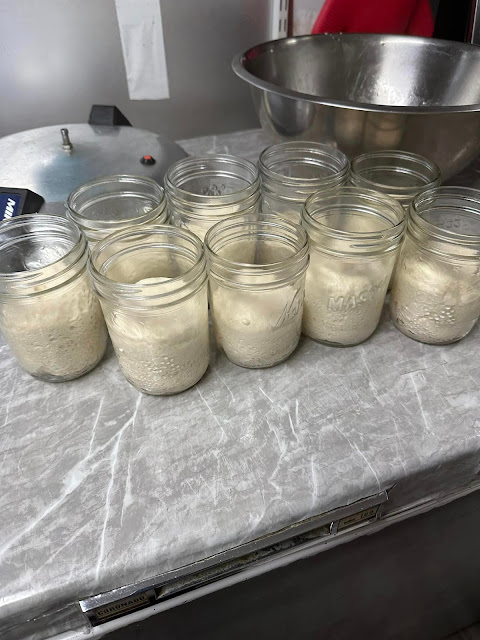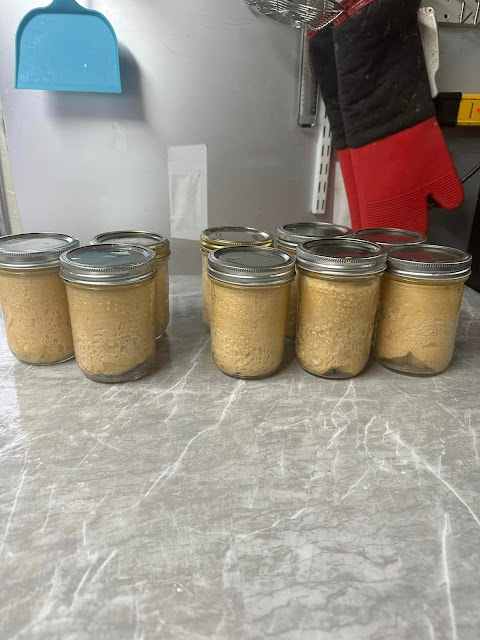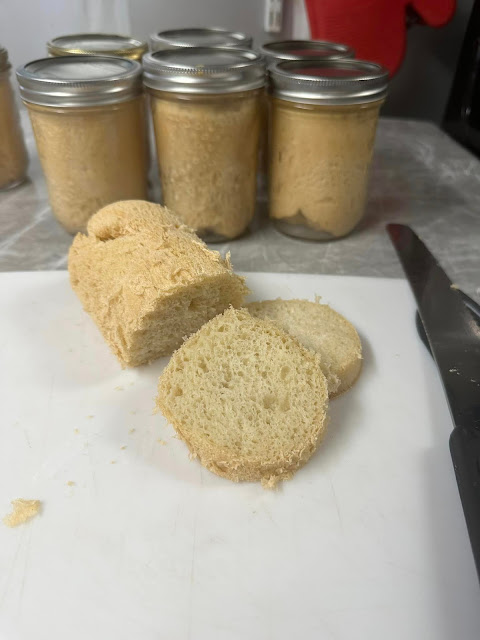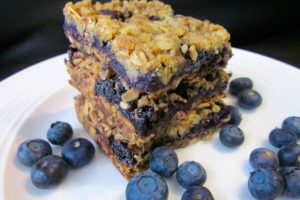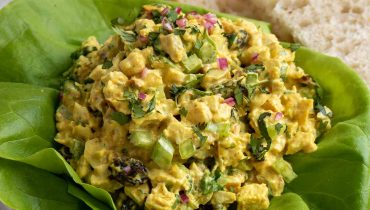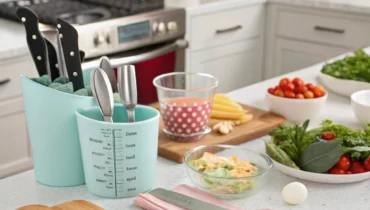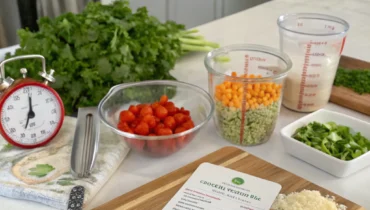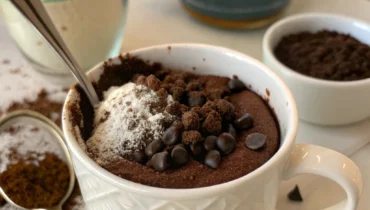The Ultimate Guide to Canning Bread
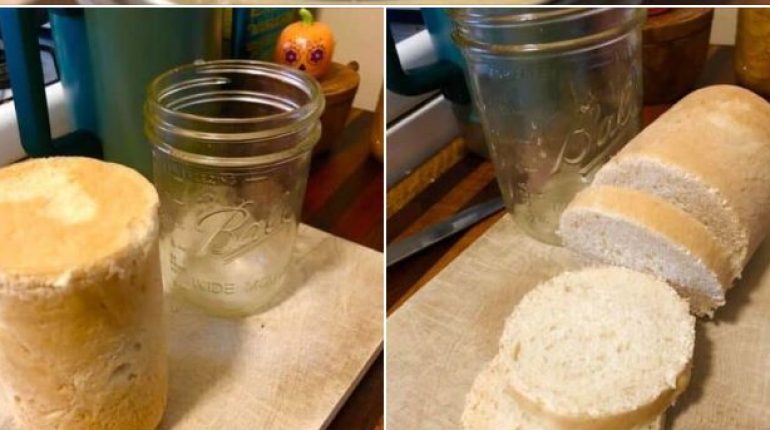
Posted October 24, 2023 by: Admin
Have you ever considered the pleasure of relishing freshly baked bread months after it left the oven? Canned bread holds the secret to this delightful experience. Not only does canning bread allow you to enjoy the taste of homemade bread long after its creation, but it also brings convenience and versatility to your pantry. In this comprehensive guide, we will delve into the process of canning bread, focusing on a basic white bread recipe. We’ll even offer an alternative oven variation for those who prefer to steer clear of pressure canning. Get ready to uncover the joy of preserving bread in jars and savoring its fresh flavors at your convenience!
The Advantages of Canned Bread:
Canned bread offers numerous benefits compared to traditional bread storage methods. By preserving bread in jars, you can:
1. Extend Shelf Life: Canned bread can endure for several months, maintaining its freshness and delectable taste. Say goodbye to the worries of bread going stale or growing mold within days.
2. Convenience: Having canned bread at your fingertips means you always have a ready-to-eat option for breakfast, sandwiches, or snacks. It’s perfect for busy mornings or when you need a quick and satisfying meal.
3. Portion Control: Canning bread in individual jars allows for portion control and easy serving. Open a jar when you crave a single serving, without fretting about the rest of the loaf going to waste.
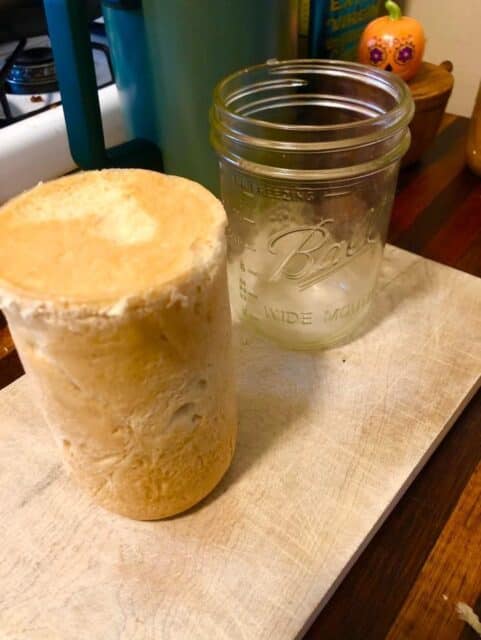
Understanding the Canning Process:
Before we delve into the recipe and instructions, it’s crucial to grasp the canning process and the factors contributing to successful preservation. Canning bread involves sterilizing jars, filling them with bread dough, allowing the dough to rise, and then sealing the jars for long-term storage. Two main methods will be explored: pressure canning and oven variation.
Pressure Canning:
Pressure canning stands as a reliable method for preserving bread in jars. It entails using a pressure canner, which provides the necessary heat and pressure to create a sealed and sterile environment within the jars. The elevated heat annihilates any potential bacteria, ensuring the safety and durability of the canned bread.
Oven Variation:
The oven variation presents an alternative for those without access to a pressure canner or those who prefer not to use one. This method relies on baking the bread-filled jars in the oven at a specific temperature and duration to achieve the desired seal and preservation.
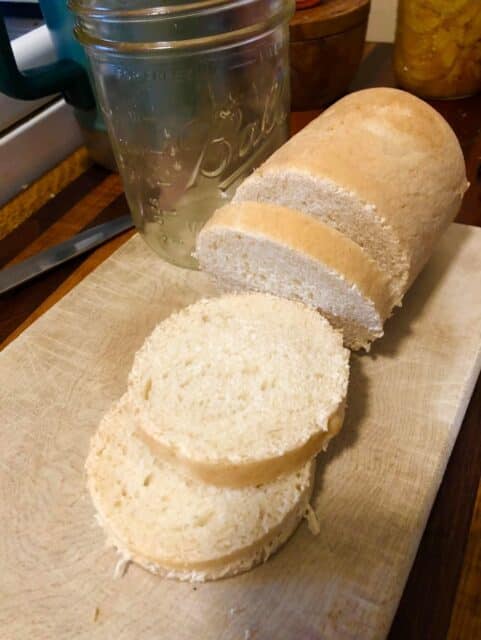
Now that we have an overview of the canning process, let’s dive into the recipe and step-by-step instructions for both methods.
Recipe: Basic White Bread Canned in Jars
Ingredients:
- – 2 tablespoons instant yeast
- – 2 1/2 – 3 cups water (adjust as needed)
- – 6-8 cups flour (adjust as needed)
- – 6 teaspoons salt
- – 2 tablespoons sugar
- – 1 tablespoon oil
Canned Bread Instructions:
1. Prepare the Jars:
Begin by sanitizing and drying approximately six wide-mouth pint jars. It’s essential to use wide-mouth jars for easy removal of the bread. To sanitize the jars, you can either wash them in hot, soapy water and rinse thoroughly or run them through a dishwasher cycle.
2. Mix and Knead the Dough:
In a large bowl, combine the yeast, water, flour, salt, sugar, and oil. Adjust the water and flour quantities as needed to achieve a smooth and elastic dough. The dough should be slightly sticky but manageable. Knead the dough for about ten minutes until the gluten develops, enhancing the structure and texture of the bread.
3. First Rise:
Transfer the dough to a greased bowl, cover it with a clean kitchen towel or plastic wrap, and allow it to rise until it doubles in size. The rising time can vary from 20 to 60 minutes, depending on your home’s temperature. A warmer environment promotes faster rising.
4. Divide and Shape the Dough:
Once the dough has doubled in size, deflate it to release any air bubbles. Divide the dough into six equal portions, shaping each into a smooth ball. Uniform sizes are crucial to ensure even baking and consistent results.
5. Fill the Jars:
Grease the inside of each jar with a thin layer of oil or non-stick cooking spray. This step prevents the bread from adhering to the jar sides during baking and eases removal later. Place one dough ball into each jar, gently pressing it with your fingertips to remove any air pockets and ensure it reaches the jar’s bottom edges.
6. Second Rise:
Once the jars are filled with dough, secure the lids tightly. Allow the dough to rise again until there is approximately a 2-inch headspace in each jar. During this rise, the dough will expand and fill the remaining space in the jars.
7. Pressure Canning:
Position the jars in a pressure canner following the manufacturer’s guidelines. Ensure you have sufficient water in the canner to generate steam and maintain the required pressure. Process the jars at the appropriate pressure canning method or the oven variation. The result is a convenient and delicious supply of bread that can be enjoyed whenever you desire. So, why not give canning bread a try? Embrace the art of preserving bread in jars and experience the joy of relishing freshly baked bread, even months after it was made.
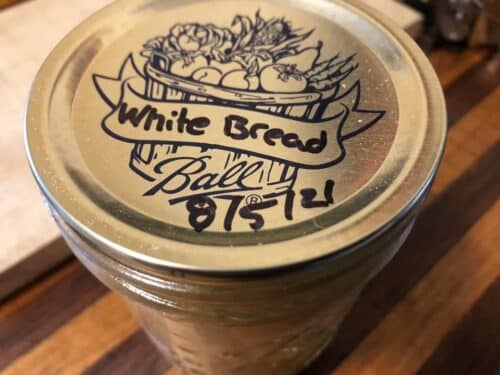
Canning bread in jars is a splendid way to preserve the freshness and flavor of homemade bread for an extended duration. Whether you opt for the pressure canning method or the oven variation, the process can be a rewarding and enjoyable endeavor. By adhering to the steps outlined in this guide, you can amass a readily stored supply of bread that will enhance your meals and snacks for months to come. So, gather your ingredients, prepare your jars, and embark on the journey of canning bread. Revel in the taste of freshly baked bread, preserved in a jar, and cherish the convenience and versatility it brings. Happy canning!
Behold the Impressive Outcome!
